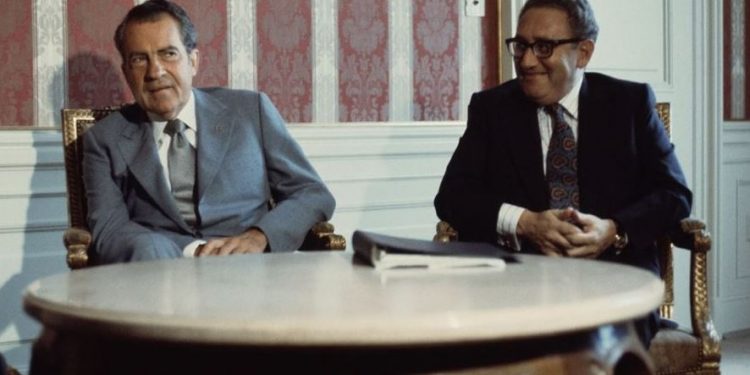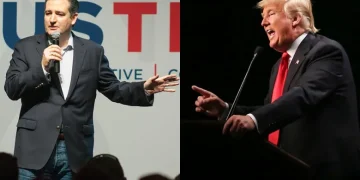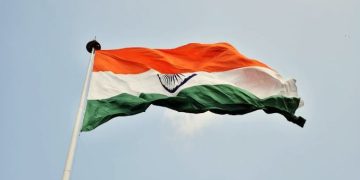Washington: All these years later, the scene still is almost too bizarre to imagine: a tearful president and his perplexed aide, neither very religious, kneeling in prayer on the floor of a White House bedroom in the waning hours of a shattered presidency.
Until the embittered end, Henry Kissinger was one of the trusted few of a distrusting Richard Nixon. That trust, combined with Kissinger’s intellectual heft and deft manipulation of power, made him a pivotal player in a tense period in American history, a giant of US Foreign policy, and a fixture in international relations for decades to come.
The German-born diplomat who got the US out of Vietnam after bloody, costly years of delay and into China in a sudden burst of secret diplomacy died Wednesday. He was 100.
With his brusque yet commanding public presence and behind-the-scenes maneuvers, Kissinger exerted extraordinary influence on global affairs under Presidents Nixon and Gerald Ford.
His power grew during the turmoil of Watergate, when the politically attuned diplomat took on a role akin to co-president to the discredited Nixon.
“No doubt my vanity was piqued,” Kissinger later wrote of his expanding influence during Watergate. “But the dominant emotion was a premonition of catastrophe.”
Ford, in awarding Kissinger the Presidential Medal of Freedom in 1977, called him a brilliant negotiator who “wielded America’s great power with wisdom and compassion in the service of peace.”
A Jew who fled Nazi Germany with his family in his teens and never lost his accent, Kissinger in his later years cultivated the reputation of respected elder statesman, giving speeches, offering advice to Republican and Democratic presidents alike, and managing a lucrative global consulting business as he traveled the world.
He turned up in Donald Trump’s White House on multiple occasions. Initially, he told “PBS NewsHour” last year, he had some sympathy with Trump’s views about America’s national interests. But he lost enthusiasm as Trump became “so centrally focused on one person” — himself — and turned issues into confrontations.
“At the end,” he said, “for an American president to challenge the constitutional system and to try to overthrow the constitutional system is a grave matter. And I find no excuse for that.”
Never without his detractors, Kissinger after he left government was dogged by critics who argued that he should be called to account for his policies on Southeast Asia and support of repressive regimes in Latin America. He had to think twice before traveling to certain countries to be sure that he would not be summoned by judges seeking to question him about Nixon-era actions.
For eight restless years — first as national security adviser, later as secretary of state, and for a time in the middle holding both titles — Kissinger ranged across the breadth of major foreign policy issues. He conducted the first “shuttle diplomacy” in the quest for Middle East peace. He used secret negotiations to restore ties between the United States and China, ending decades of isolation and mutual hostility.
He initiated the Paris talks that ultimately provided a face-saving means — a “decent interval,” he called it — to get the United States out of Vietnam. Two years later, Saigon fell to the communists, leaving a bitter taste among former US allies who blamed Nixon, Kissinger, and Congress for abandoning them.
And he pursued a policy of detente with the Soviet Union that led to arms control agreements and raised the possibility that the tensions of the Cold War and its nuclear threat did not have to last forever.
Historian Robert Dallek, in a 2011 interview, singled out as Kissinger’s signature achievement his work with Nixon to create “a culture of peace, a set of conditions that could reduce the prospect of nuclear war.”
His failings, added Dallek, were that he was “too egotistical, too convinced of his own brilliance.”
Kissinger was a practitioner of realpolitik — using diplomacy to achieve practical objectives rather than advance lofty ideals. Supporters said his pragmatic bent served US interests; critics saw a Machiavellian approach that ran counter to democratic ideals.
He was faulted for authorizing telephone wiretaps of reporters and his own National Security Council staff to plug news leaks in Nixon’s White House. He was denounced on college campuses for the bombing and allied invasion of Cambodia in April 1970, intended to destroy North Vietnamese supply lines to communist forces in South Vietnam.
That “incursion,” as Nixon and Kissinger called it, was blamed by some for contributing to Cambodia’s fall into the hands of Khmer Rouge insurgents, who later slaughtered some 2 million Cambodians.
Nixon sent mixed messages about Kissinger’s influence.
Biographer Walter Isaacson wrote that Kissinger sputtered with rage after Nixon, in his 1977 interviews with David Frost, played down Kissinger’s role. But when Nixon heard of Kissinger’s displeasure, Isaacson wrote, the ex-president scrawled a conciliatory letter to Kissinger friend Susan Mary Alsop, saying that “without Henry’s creative ideas and diplomatic skill, we would never have succeeded with our China initiative, the Soviet SALT I agreement, the Vietnam Peace Agreement and the progress toward reducing tensions in the Middle East.”
Historian Stanley Kutler said in a 2011 interview that while Nixon ran his own foreign policy shop, “Henry Kissinger was always a willing accomplice and an enabler of the politicization of decisions in foreign policy. Certainly the decision on when and whether to end the war in Vietnam was done with a domestic political calculus in mind.”
Kissinger, for his part, made it his mission to debunk what he referred to in 2007 as a “prevalent myth” — that he and Nixon had settled in 1972 for peace terms that had been available in 1969 and thus had needlessly prolonged the war at the cost of tens of thousands of American lives.
He insisted that the only way to speed up the withdrawal of US troops “was to overthrow the government” of South Vietnam.
“That we weren’t willing to do,” he said at a 2010 forum on Vietnam at the State Department. “Was that a mistake? I don’t think so.”
But historian Jeffrey Kimball, who wrote “The Vietnam War Files: Uncovering the Secret History of Nixon-Era Strategy,” concluded that Kissinger’s record “is one of persisting in a deadlocked war for the sake of appearances — i.e. Salvaging an elusive and false US credibility.”
Kissinger was pudgy and messy but incongruously acquired a reputation as a ladies’ man in the staid Nixon administration. Kissinger, who divorced his first wife in 1964, called women “a diversion, a hobby.” Hollywood executives were eager to set him up with starlets, whom Kissinger squired to premieres and showy restaurants, according to Isaacson. Jill St. John was a frequent companion. Others he dated included Shirley MacLaine, Marlo Thomas, Candice Bergen, and Liv Ullmann.
In a poll of Playboy Club Bunnies in 1972, the man whom Newsweek dubbed “Super-K” finished first as “the man I would most like to go out on a date with.”
Kissinger’s explanation: “Power is the ultimate aphrodisiac.”
Nixon at first found Kissinger’s image as a swinger amusing, but later tired of it. Chief of staff HR Haldeman in 1971 issued a memo stating that “in seating at State Dinners, the President feels that Henry should not always be put next to the most glamorous woman. … It’s starting to cause unfavorable talk that serves no useful purpose.”
It turned out that Kissinger’s real love interest was Nancy Maginnes, a tall, glamorous researcher for Nelson Rockefeller whom he dated for years before they married in 1974.
Gallup found he was the most admired man in America in 1972 and in 1973, the year he won the Nobel Prize with Le Duc Tho, North Vietnam’s chief negotiator, for the accord under which America pulled out of South Vietnam. (Tho declined the award.)
And yet Kissinger was reviled by many Americans for his conduct of wartime diplomacy. When Columbia University proposed to give Kissinger a teaching post after he left government in 1977, the idea drew such strong protest among students and faculty that the job never materialized. He was still a lightning rod decades later: In 2015, an appearance by the 91-year-old Kissinger before the Senate Armed Services Committee was disrupted by protesters demanding his arrest for war crimes and calling out his actions in Southeast Asia, Chile, and beyond.
Kissinger was smart, self-deprecating, a master at cultivating the right people. He also was arrogant, hot-tempered, and manipulative.
His brother, Walter, was said to have been asked why he had no accent when Henry did. “Sometimes I listened,” Walter replied.
Kissinger told colleagues at the White House he was the one person who kept Nixon, “that drunken lunatic,” from doing things that would “blow up the world,” according to Isaacson, who wrote the 1992 biography “Kissinger.”
The two men shared an ambivalent personal relationship, Kissinger writing in his memoirs that “deep down one could never be certain that what one found so disturbing in Nixon might not also be a reflection of some suppressed flaw within oneself.”
Ford, in a 2004 interview with The Washington Post published after his death in 2006, said Kissinger had “the thinnest skin of any public figure I ever knew.” He said Kissinger routinely would threaten to resign after receiving critical press coverage, and Ford would literally have to hold his hand and tell him, “Now, Henry, you’ve got the nation’s future in your hands and you can’t leave us now.”
“I often thought, maybe I should say: Okay, Henry. Goodbye,” Ford said with a laugh.
“I think he was a super secretary of state,” Ford added.
AP






































